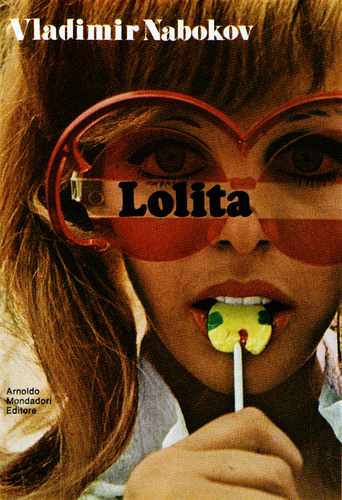 I recently read Lolita and found myself unable to describe its impact on me – making my heart spin, my brain fog up, and my mouth hang open in rapturous disbelief – until I came to Nabokov’s supplement at the end of the book and found that he’d done it for me.
I recently read Lolita and found myself unable to describe its impact on me – making my heart spin, my brain fog up, and my mouth hang open in rapturous disbelief – until I came to Nabokov’s supplement at the end of the book and found that he’d done it for me.
He offers a few notes on his reason for writing what would become his masterpiece; he called it a “throbbing” that grew in him over a number of years until he plainly needed to just get the thing out of himself (with mixed reception, to put it simply). Without restraint, Nabokov criticizes those who cannot read a piece of fiction without asking “Why?” Why did he write it? Why should it be read? What does it have to teach us? Of course we’ve all been instructed to ask these questions by simple-minded English teachers who were instructed to ask us these questions by their simple-minded superiors, but in the end, do we (should we) always need a reason, a lesson, to glean from fiction? Nabokov writes,
There are gentle souls who would pronounce Lolita meaningless because it does not teach them anything. I am neither a reader nor a writer of didactic fiction, and, despite John Ray’s assertion, Lolita has no moral in tow. For me a work of fiction exists only insofar as it affords me what I shall bluntly call aesthetic bliss, that is a sense of being somehow, somewhere, connected with other states of being where art (curiosity, tenderness, kindness, ecstasy) is the norm. There are not many such books.
So why read something that doesn’t teach us anything? Is it worth the hours spent squinting over page after page, sentence after sentence, word after word in hopes that we might find something that can briefly give us the sense of another state of being? Three important reasons come to mind when I think of Lolita (none of them seeking the didactic):
-1- To better understand language in itself as an artistic medium and discover the surprising, unique and beautiful things that can be done with it (by a non-native speaker, nonetheless).
-2- To think things and feel things that you may not have known possible.
And -3- To taste for even a fleeting moment – like those waiting and writhing on the trembling pages of Nabokov’s book – pure and complicated and shining aesthetic bliss.
i will be sure to read lolita. I saw the kubrick film and thought it was an interesting story indeed! both lolita and humbert are interesting characters…